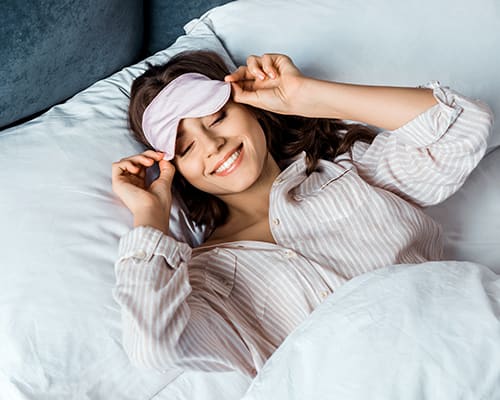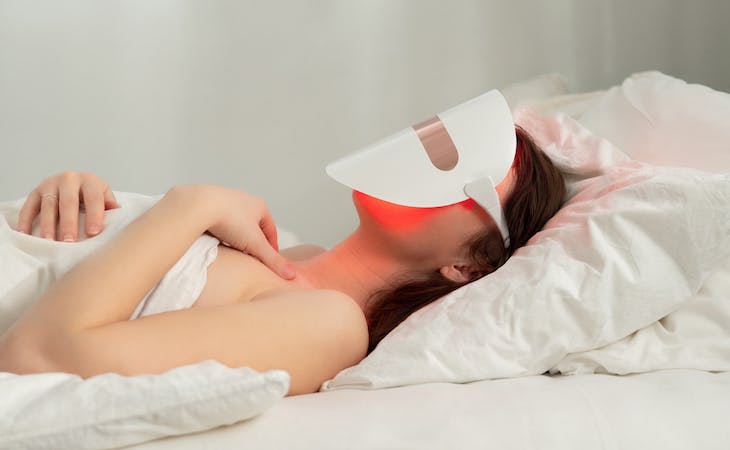Comprehensive Sleep Disorder Treatment - Discover the most effective Solutions
Wiki Article
Reliable Therapy Solutions for Handling Rest Disorders and Enhancing Relaxed Sleep
In the realm of health care, the management of sleep conditions and the quest for restful sleep are pivotal parts of general wellness. Reliable therapy solutions supply a diverse strategy to deal with these obstacles, ranging from cognitive behavioral interventions to all natural methods that advertise relaxation and mindfulness. The exploration of various approaches, including the combination of drug and light therapy, opens a realm of possibilities in the search of much better sleep high quality. As we browse the detailed landscape of rest problems and look for to improve our sleep experience, a deeper understanding of these therapy solutions might hold the key to opening an extra refreshing and satisfying corrective trip.Cognitive Behavior Modification for Insomnia (CBT-I)
Cognitive Behavior Treatment for Sleeplessness (CBT-I) is a structured, evidence-based therapy approach that focuses on attending to the hidden elements adding to rest disturbances. This kind of therapy aims to change actions and ideas that intensify sleeping disorders, eventually promoting healthy and balanced sleep patterns. CBT-I generally involves numerous essential parts, including cognitive therapy, rest constraint, stimulation control, and rest hygiene education.Cognitive treatment helps people identify and transform unfavorable thought patterns and ideas regarding rest that may be hindering their capacity to fall or stay asleep. Rest constraint includes restricting the quantity of time invested in bed to match the person's actual sleep period, therefore enhancing sleep performance (sleep deprivation help). Stimulation control strategies aid establish a strong association in between the bed and rest by urging people to go to bed just when drowsy and to avoid taking part in boosting activities in bed
In addition, sleep health education concentrates on creating healthy rest behaviors, such as keeping a regular rest timetable, producing a relaxing bedtime routine, and enhancing the sleep environment. By dealing with these aspects comprehensively, CBT-I offers an effective non-pharmacological treatment for taking care of sleeping disorders and enhancing overall rest quality.
Rest Health Practices
Having actually developed the structure of cognitive restructuring and behavior modifications in dealing with sleeping disorders via Cognitive Behavioral Treatment for Sleep Problems (CBT-I), the emphasis now shifts towards discovering crucial Sleep Health Practices for keeping optimum rest high quality and total well-being.Rest health practices encompass a variety of behaviors and environmental variables that can substantially impact one's ability to go to sleep and stay asleep throughout the evening. Regular sleep and wake times, creating a relaxing bedtime regimen, and optimizing the rest atmosphere by keeping it dark, silent, and cool are important parts of great rest health. Restricting exposure to screens prior to bedtime, preventing stimulants like caffeine close to going to bed, and taking part in regular exercise throughout the day can also promote better rest high quality.
Furthermore, practicing leisure strategies such as deep breathing workouts or reflection before bed can aid soothe the mind and prepare the body for sleep. By including these rest health techniques right into one's day-to-day regimen, people can establish a healthy and balanced sleep pattern that sustains restful sleep and overall well-being.
Leisure Methods and Mindfulness
Implementing leisure methods and mindfulness practices can play a pivotal role in fostering a feeling of calm and advertising quality rest. sleep therapy. These techniques intend to silent the mind, minimize stress and anxiety, and create an optimal environment for peaceful rest. One extensively exercised method is deep breathing exercises, where people concentrate on slow-moving, deep breaths to unwind the mind and body. Modern muscle mass leisure involves tensing and after that releasing each muscular tissue team, advertising physical relaxation. Furthermore, led images can assist transfer people to a tranquil area in their minds, aiding in stress and anxiety decrease and improving rest quality.By incorporating these methods right into a going to bed routine, people can signal to their bodies that it is time to relax and prepare for rest. Overall, incorporating relaxation methods and mindfulness techniques can substantially add to managing sleep conditions and improving overall rest top quality.

Medication Options for Rest Disorders
After checking out leisure methods and mindfulness techniques as non-pharmacological treatments for enhancing sleep high quality, it is vital to take into consideration medication choices for individuals with sleep disorders. In instances where way of life changes and therapy do not provide adequate alleviation, medicine can be a beneficial tool in managing rest disturbances.
Frequently suggested medicines for sleep disorders consist of benzodiazepines, non-benzodiazepine hypnotics, antidepressants, and melatonin receptor agonists. Benzodiazepines, such as diazepam, are sedatives that can assist generate sleep, yet they are usually recommended for short-term use due to the risk of dependancy. Non-benzodiazepine hypnotics like zolpidem are also used to treat sleeping disorders and have a lower danger of dependancy contrasted to benzodiazepines. Antidepressants, such as trazodone, can be helpful for people with co-occurring depression and rest disturbances. Melatonin receptor agonists, like ramelteon, target the body's natural sleep-wake cycle and can be valuable for controling sleep patterns.
It is important for individuals to speak with a look at here doctor to establish one of the most suitable drug option based upon their particular rest problem and medical history.
Light Therapy for Body Clock Guideline
Light treatment, additionally understood as phototherapy, is a non-invasive therapy technique utilized to manage circadian rhythms and boost sleep-wake cycles. This therapy involves direct exposure to intense light that simulates natural sunshine, which aids to reset the body's biological rhythm. By revealing individuals to certain wavelengths of light, generally in the early morning or evening relying on the wanted impact, light treatment can properly adjust the body clock to promote wakefulness during the day and enhance relaxed rest during the night.Study has actually shown that light therapy can be particularly useful for people with body clock disorders, such as postponed rest phase syndrome or jet lag. It can additionally be helpful for those experiencing seasonal affective condition (SAD), a sort of anxiety that generally occurs during the winter season when all-natural light exposure is decreased. Light therapy is typically well-tolerated and can be utilized in conjunction with various other treatment techniques for rest disorders to optimize outcomes and enhance total rest high quality.
Conclusion
To conclude, effective treatment options for taking care of sleep disorders and enhancing relaxing sleep include Cognitive Behavioral Treatment for Sleeplessness (CBT-I), sleep hygiene methods, leisure methods and mindfulness, drug choices, and light treatment for body clock regulation. These techniques can help individuals boost their rest quality and general wellness. It is very important to seek advice from with a doctor to identify the most suitable approach for dealing with sleep issues.
As we navigate the elaborate landscape of sleep problems and seek to enhance our sleep experience, a much deeper understanding of these therapy options may hold the secret to opening an extra refreshing and satisfying corrective journey.
Sleep constraint includes restricting the amount of time spent in bed to match the person's real sleep duration, thereby raising sleep efficiency. Regular rest and wake times, creating a relaxing bedtime routine, and optimizing the sleep atmosphere by keeping it dark, peaceful, and cool are important parts of great sleep hygiene. Light treatment is usually well-tolerated and can be used in conjunction with various other therapy techniques zinc insomnia for sleep problems to enhance outcomes and boost overall sleep quality.

Report this wiki page